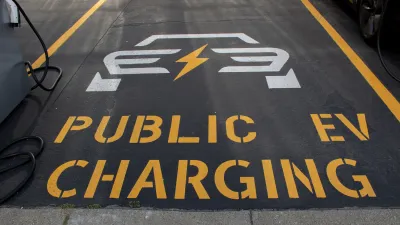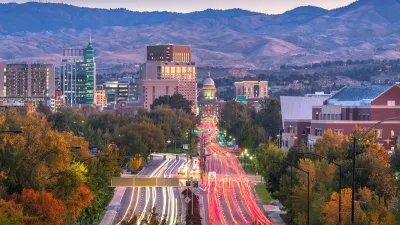NC Rep. Price Harrison hopes that the third time's a charm when he reintroduces legislation requiring higher auto emissions standards. If it passes, the state's standards may start looking more like California's within the coming year.
"Federal environmental regulators announced last week that they will reconsider a request by California and 13 other states to control greenhouse gases from motor vehicles. That may kick-start debates in other states about which is preferable, the so-called federal CAFE (Corporate Average Fuel Economy) standard or the more stringent California standard.
The Obama administration plans to set new federal standards for 2011 model-year autos as part of a 2007 law to require new cars and trucks to achieve 35 miles per gallon by 2020, a 40 percent increase. The California standard would yield an estimated fuel economy of 43 miles per gallon by 2020.
An analysis by the N.C. Division of Air Quality suggests that the California rules would be more effective at reducing greenhouse gases than the federal CAFE program. The agency estimates that adopting the California standards instead of the federal standards would reduce greenhouse gas emissions in the state by 40 percent between 2009 and 2020.
'Emissions is not something people talk about when they go buy a car,' said Anne Tazewell, transportation program manager at the N.C. Solar Center at N.C. State University. 'It's a big issue. Vehicles are a major source of our urban air quality problems.'"
FULL STORY: Third volley for cleaner cars

Planetizen Federal Action Tracker
A weekly monitor of how Trump’s orders and actions are impacting planners and planning in America.

Map: Where Senate Republicans Want to Sell Your Public Lands
For public land advocates, the Senate Republicans’ proposal to sell millions of acres of public land in the West is “the biggest fight of their careers.”

Restaurant Patios Were a Pandemic Win — Why Were They so Hard to Keep?
Social distancing requirements and changes in travel patterns prompted cities to pilot new uses for street and sidewalk space. Then it got complicated.

Platform Pilsner: Vancouver Transit Agency Releases... a Beer?
TransLink will receive a portion of every sale of the four-pack.

Toronto Weighs Cheaper Transit, Parking Hikes for Major Events
Special event rates would take effect during large festivals, sports games and concerts to ‘discourage driving, manage congestion and free up space for transit.”

Berlin to Consider Car-Free Zone Larger Than Manhattan
The area bound by the 22-mile Ringbahn would still allow 12 uses of a private automobile per year per person, and several other exemptions.
Urban Design for Planners 1: Software Tools
This six-course series explores essential urban design concepts using open source software and equips planners with the tools they need to participate fully in the urban design process.
Planning for Universal Design
Learn the tools for implementing Universal Design in planning regulations.
Heyer Gruel & Associates PA
JM Goldson LLC
Custer County Colorado
City of Camden Redevelopment Agency
City of Astoria
Transportation Research & Education Center (TREC) at Portland State University
Camden Redevelopment Agency
City of Claremont
Municipality of Princeton (NJ)





























